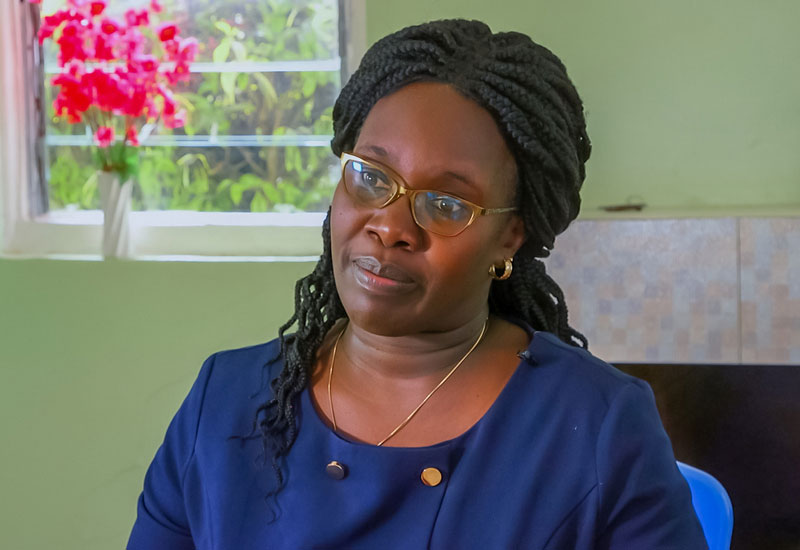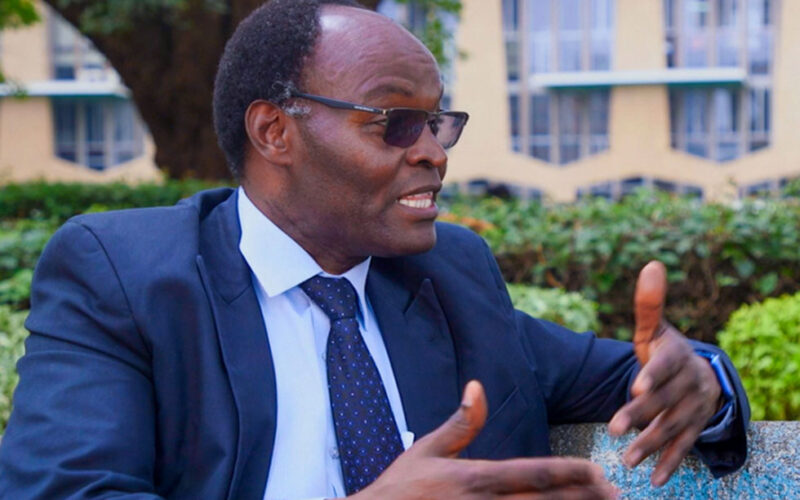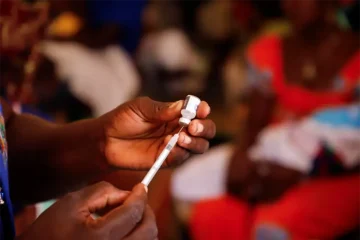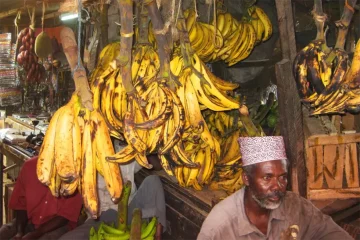WHEN Wambui Warui developed post-traumatic stress disorder (PTSD) after losing her daughter to cancer, it took ages to get a diagnosis so she could receive care.
“I would go from one doctor to another. I go to this hospital, they test me. They did the kidney, liver, all the internal organs. I move from there, go to another doctor… we do CT scans for my brain. There’s nothing wrong. I go to another doctor, because every time I don’t get an answer that I had already in me, I would look for another doctor,” Warui disclosed.
Warui was finally diagnosed with PTSD after a year spent moving from one hospital to another and taking multiple tests. This time, the prognosis stuck and she began counselling. But it could all have been much easier.
Like Warui, Elizabeth Kanyi suffered from mental illness for years. She was finally diagnosed with severe depression after helping to look after her ill parents, and then losing them both, just hours apart.
The lack of a mental health care mechanism at Kanyi’s workplace drove her to more anguish and suffering.
“The diagnosis was done in 2019. In mid-2016, at one time, I had an outburst in my supervisor’s office… it was taken to be dramatic. So, I could not get any help,” Kanyi said.
Kenya’s startup culture has sprung to the rescue. A plethora of online services and apps now offer a wide array of options for those seeking help, or simply reassurance. These include the likes of digital mental health company Wazi, mental health platform Shamiri Health, the PsychX platform and Green String Network, as well as My Mind My Funk, Maisha by Thalia, Akili Sawa and HUGs.
According to Natalie Mukami, a Senior Associate at Shamiri Health, the huge growth in platforms like Shamiri is raising awareness and helping reduce the stigma around mental health. Shamiri Health, a project of Shamiri Institute – a non-governmental organisation based in Kenya – has an app called Rafi Mental Wellness which helps connect patients with resources anonymously.

With different platforms offering different services, the Rafi app offers what Mukami refers to as low-touch therapy.
“Because this is digitized, someone can access them from wherever they are. And as per their comfort level, it can be their home, it can be at work, wherever they’re comfortable, and wherever would work for them. Our platform is community-oriented and focuses on low-touch therapy. Low-touch therapy is ideally an array of brief, simple mental health solutions that range from self-help exercises, check therapy, peer support, and lay therapy that are not necessarily delivered by clinicians or psychiatrists,” Mukami said.
“We have a variety of services on this Rafi app. This includes daily check-in assessments, where individuals can respond to a few questions a day to assess their mental well-being for the day. We also have one-on-one therapy sessions. And these are sessions that mainly occur through teletherapy. So, an individual will book their preferred time on the app. And when that time comes, the therapist will be the one to call them for a one-hour therapy session,” Mukami explained.
While the Rafi app is aimed primarily at young users, the growth of online services has extended into the sphere that was previously reserved for traditional, in-person counselling, too.
Dr. Venus Kyengo, a veteran counselling psychologist, said she was not aware of the Rafi app but noted that e-therapy has helped get closer to people in need.
“When I am not conducting one-on-one sessions, I am meeting individuals or groups of people on different online spaces among them WhatsApp, Twitter spaces, Zoom, TikTok, and Instagram,” Kyengo said.
“The fact that we can do e-therapy and use technology to our advantage is one of the most innovative ways of getting to people. We have those clients who are not able to afford the services, so if they can just log in to a live session and learn from there, of course, that is double impact for them,” she added.

The various apps and services are not only for those who are actually suffering from mental health issues, either.
“Our resources are not only for people who are suffering but for everyone who wants to gauge themselves and keep their mental wellness in check and this way, one can recognize when they are going down with a mental challenge,” Mukami shared.
Governments and health institutions in the region are also adjusting their services to accommodate care that was not available in the past.
According to the World Health Organization, more than 116 million Africans are living with mental health challenges.
The Kenyan National Commission of Human Rights estimates that between 25% and 40% of outpatients and inpatients suffer from mental health conditions with the most frequent diagnoses being depression, substance abuse, stress, trauma, and anxiety.
Geoffrey Wango, a professor in the Department of Psychology at the University of Nairobi, pointed to a commemoration of World Mental Health Day as one way of raising awareness of the issue. The 2023 theme is “Mental health is a universal human right”.
“The mental health awareness day is very important because what it does is that it places mental health as a very important aspect, not just in one country, but in the whole world. It allows people to reconnect and revisit several aspects to do with mental health and what is it that they are doing. For instance, there is a serious issue of mental health in the more developing countries, and therefore, it’s an opportunity for them to reflect on what they are doing, how they’re doing their programs, what we need to do on awareness, and of utmost importance, prevention. Taking into consideration the factors that come in, such as stigma and discrimination in the lower to middle-income countries,” he said.
Both Warui and Kanyi are now managing their mental health challenges after their problems were discovered and necessary care was initiated.
Following her therapy sessions, Warui can now walk the corridors of the hospital where her daughter died.
“It had taken me more than 10 years to go to Kenyatta Hospital because I was fearing just to see the corridors of Kenyatta Hospital where my daughter died. From there, the therapist told me how it is good not to avoid my triggers. So I stopped avoiding my triggers, looking at her photos, and talking about her, I started getting bold,” Warui shared.














